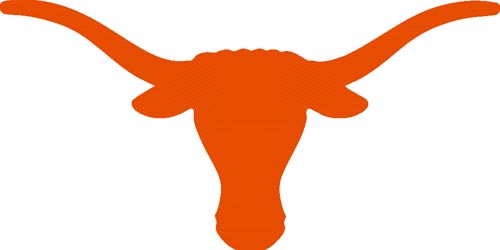
The holiest day of the Jewish year and the holiest day of the Longhorn calendar don’t usually coincide. However, next year, Yom Kippur and the Red River Rivalry both fall on Oct. 8, leaving Jewish Longhorns, about 10.5 percent of the UT student body, in a major predicament.
Chances are, reader, you did not grow up in Austin, Texas or in Oklahoma, nor do you/did you go to school at UT or at Oklahoma University. So chances are that you don’t know how big a deal the Red River Rivalry is.
On the other hand, chances are that you’re either a Jew or you know enough about Jews to know how big a deal Yom Kippur is. For UT and OU fans, the Red River Rivalry about as big a deal as Yom Kippur is for the Jews.
As the Jerusalem Post (!) put it in their coverage of this holy near-convergence of Texan and Jewish calendars:
The Texas-Oklahoma game, widely known as the “Red River Rivalry,” is traditionally played each year at the Cotton Bowl during the Texas State Fair.
By Friday, my hometown paper, the Austin American-Statesman, reported:
The Student Government at the University of Texas, responding to concerns expressed by Jewish students, is calling on school officials to reschedule next year’s Texas-Oklahoma football game, which falls on Yom Kippur, the holiest day of the year for Jews.
Indeed, a petition was circulated online, as the Daily Texan wrote on Friday:
A group of Jewish students is circulating two petitions to encourage the athletics department to consider an alternative weekend that would still allow the game to be played at the Cotton Bowl during the State Fair of Texas….
“If it’s something that’s a possibility, there’s no reason it shouldn’t happen, and we haven’t heard a good reason not to move it,” said Ben Freed, a Middle Eastern studies and broadcast journalism senior who is one of the group’s organizers.There are about 4,000 undergraduate Jewish students and about 800 Jewish students in UT’s graduate programs, according to the Texas Hillel website. Students are hosting a petition online at movetxou.com. The student version has received more than 3,000 signatures, while a version for alumni, families and other affiliated non-students has more than 1,000. [A Daily Texan staff editorial pointed out that the numbers indicate this could be a conflict for as many as 10.5% of current UT students.]
“This is not a Jewish issue,” Freed said. “It would still be an issue if it were scheduled during Easter or Eid al-Fitr. So the response from the non-Jewish community has been awesome.”
In the comments on the article above, it gets interesting. Some point out that if you’re a committed Jew, you’ll forgo the game and go to shul. Others point out that Longhorn football has been played on Easter, Good Friday and Thanksgiving.
I can’t help but think that this is a little different from all of those. Importance of holidays in different traditions may be equal, but the style of observance isn’t the same. Yom Kippur demands a day of fasting and full day in shul while other Longhorn fans will be feasting and watching the big game.
